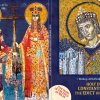Tоком целог јула одржаће се манифестација „Тесла дани 2016”, поводом 160 година од рођења славног проналазача и научника Николе Тесле, у оквиру културно-туристичке руте „Путевима Тесле”. Манифестацију организује Кластер путева културе, који окупља више од 40 институција културе, туристичких организација и агенције привредника и шест факултета у Србији, Словенији и Хрватској.
Док је претходних година Теслин рођендан обележаван скромно, ове године, управо због јубилеја, славље ће трајати читав месец и биће обележен бројним изложбама, експериментима, предавањима. „Тесла дане” обележиће пројекције филмова о старим хидроелектранама Електропривреде Србије и филма који су заједно урадили уметници из Србије и Њујорка, који ће истовремено бити приказан у Београду на Аеродрому „Никола Тесла”, у једној галерији у Њујорку и у Народном музеју у Крагујевцу, чиме ће Тесла симболично повезати Србију и Америку.
На сам Теслин рођендан, 10. јула, у Музеју Николе Тесле биће изведен посебан експеримент, а ЕПС ће организовати Тесла собу у којој ће посетиоци моћи да се упознају с Теслиним патентима, решавају задатке и освајају награде. Културна рута „Путевима Тесле” обухвата Музеј Николе Тесле који чува целокупну Теслину заоставштину, затим Београд из угла Николе Тесле, који је научник посетио на само један дан 1892. године, и десет малих електрана ЕПС-а.
Извор: Политика




